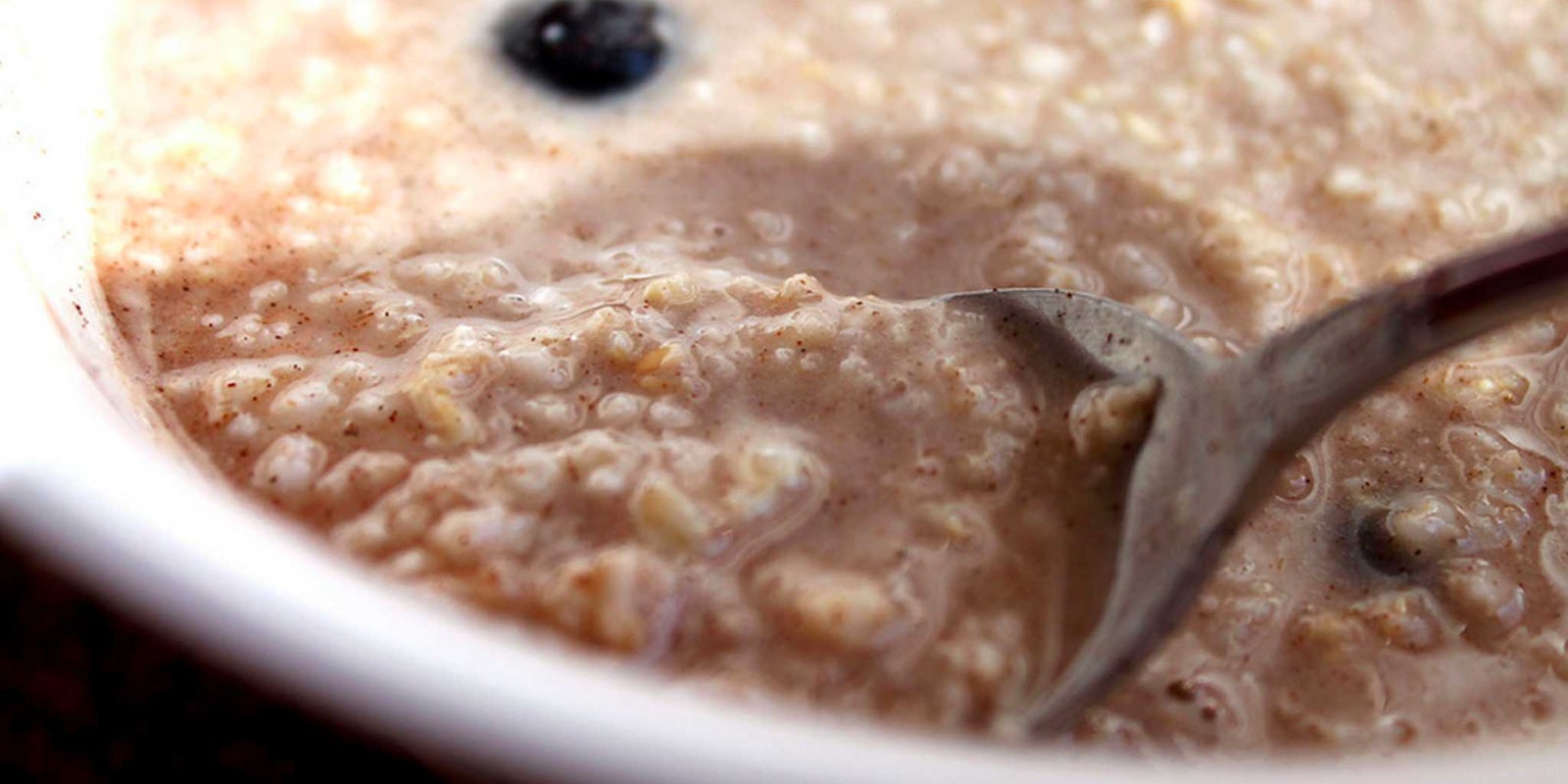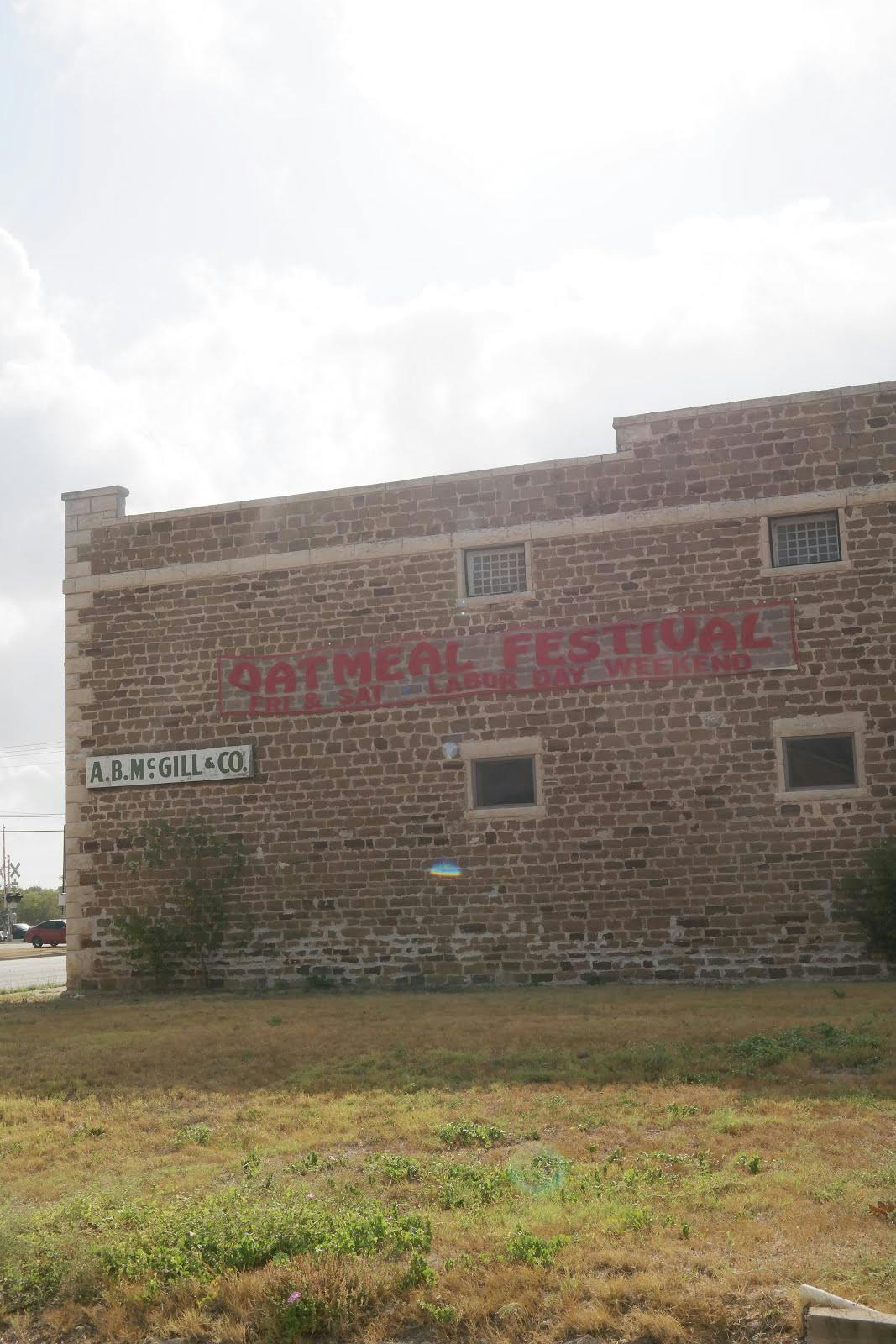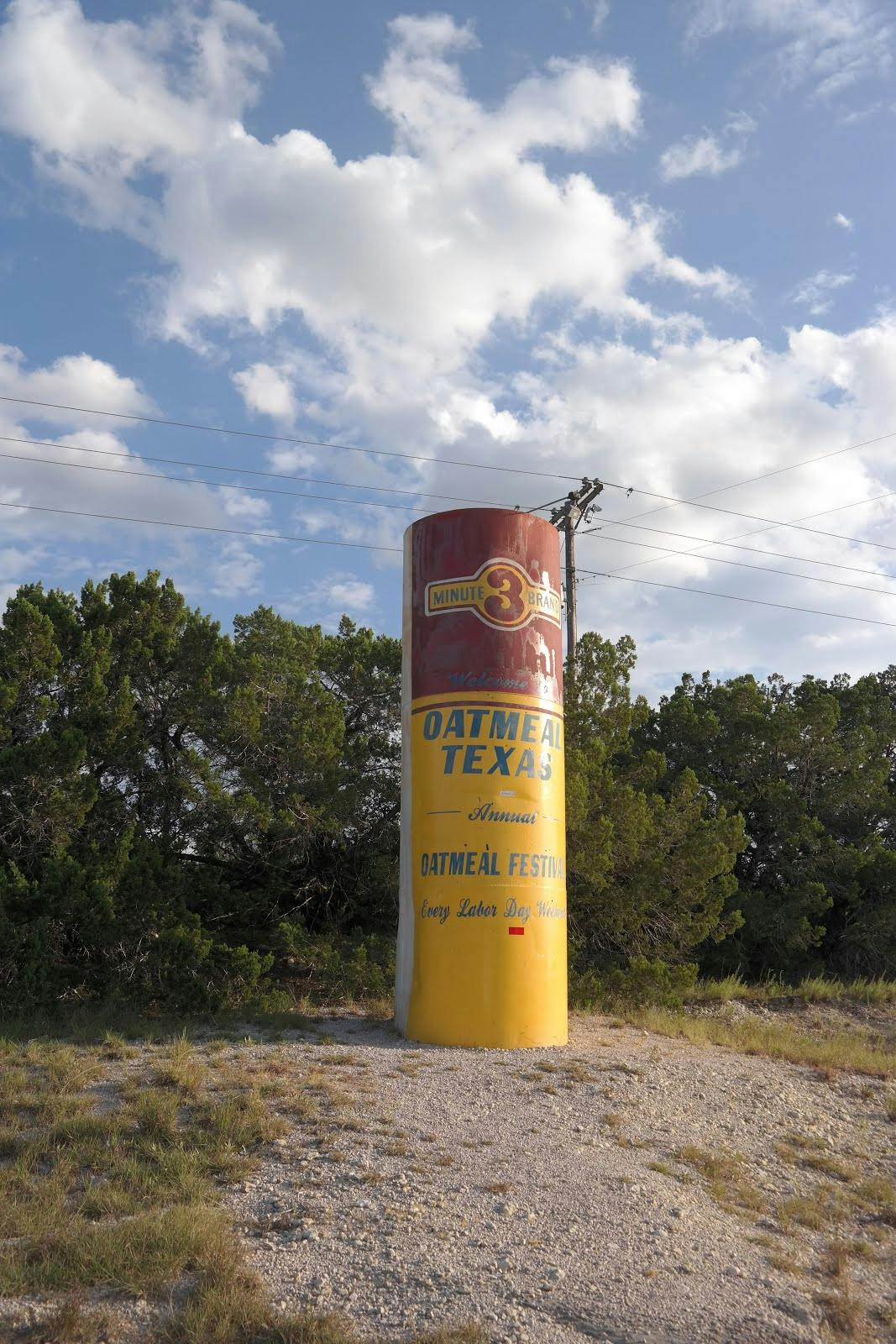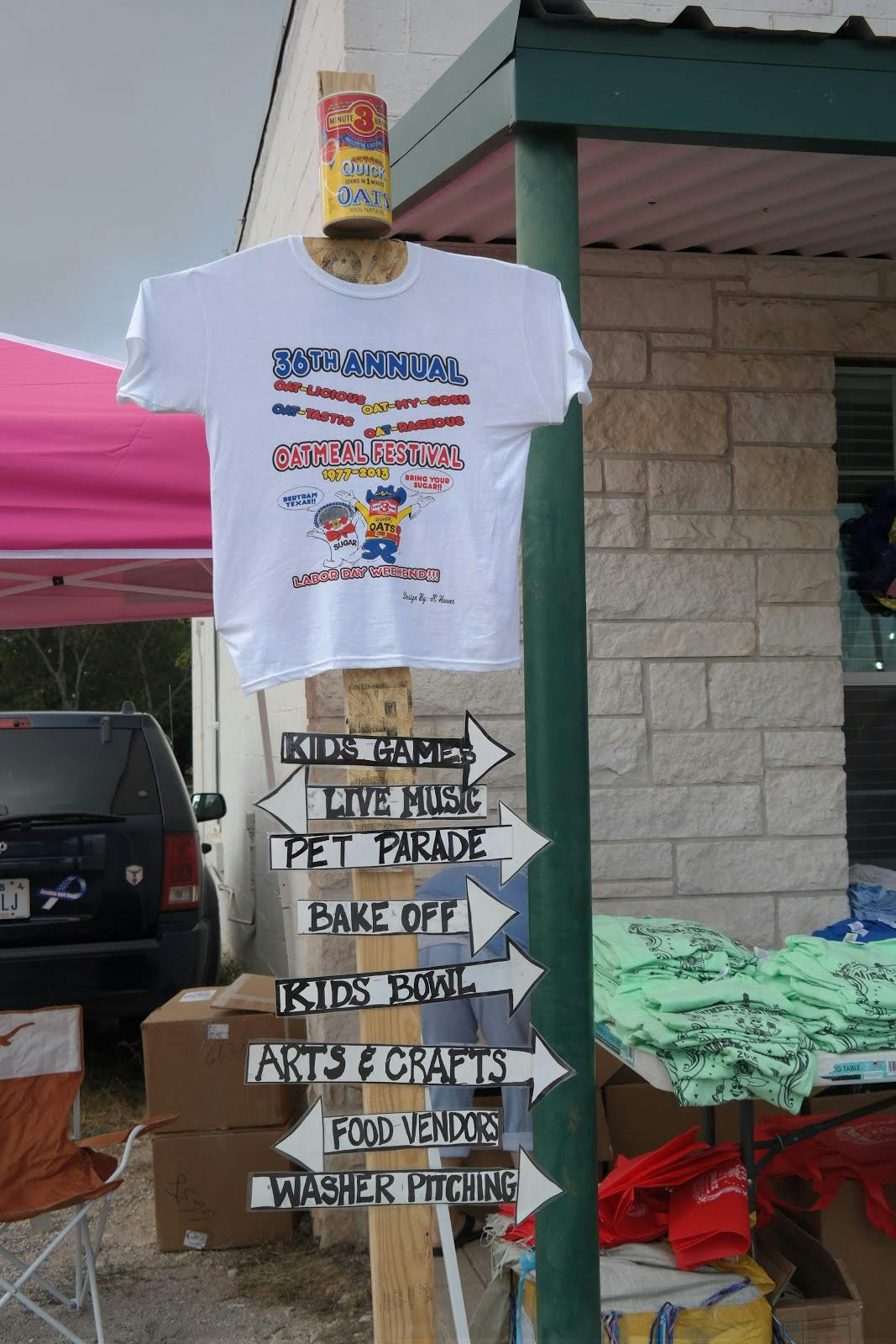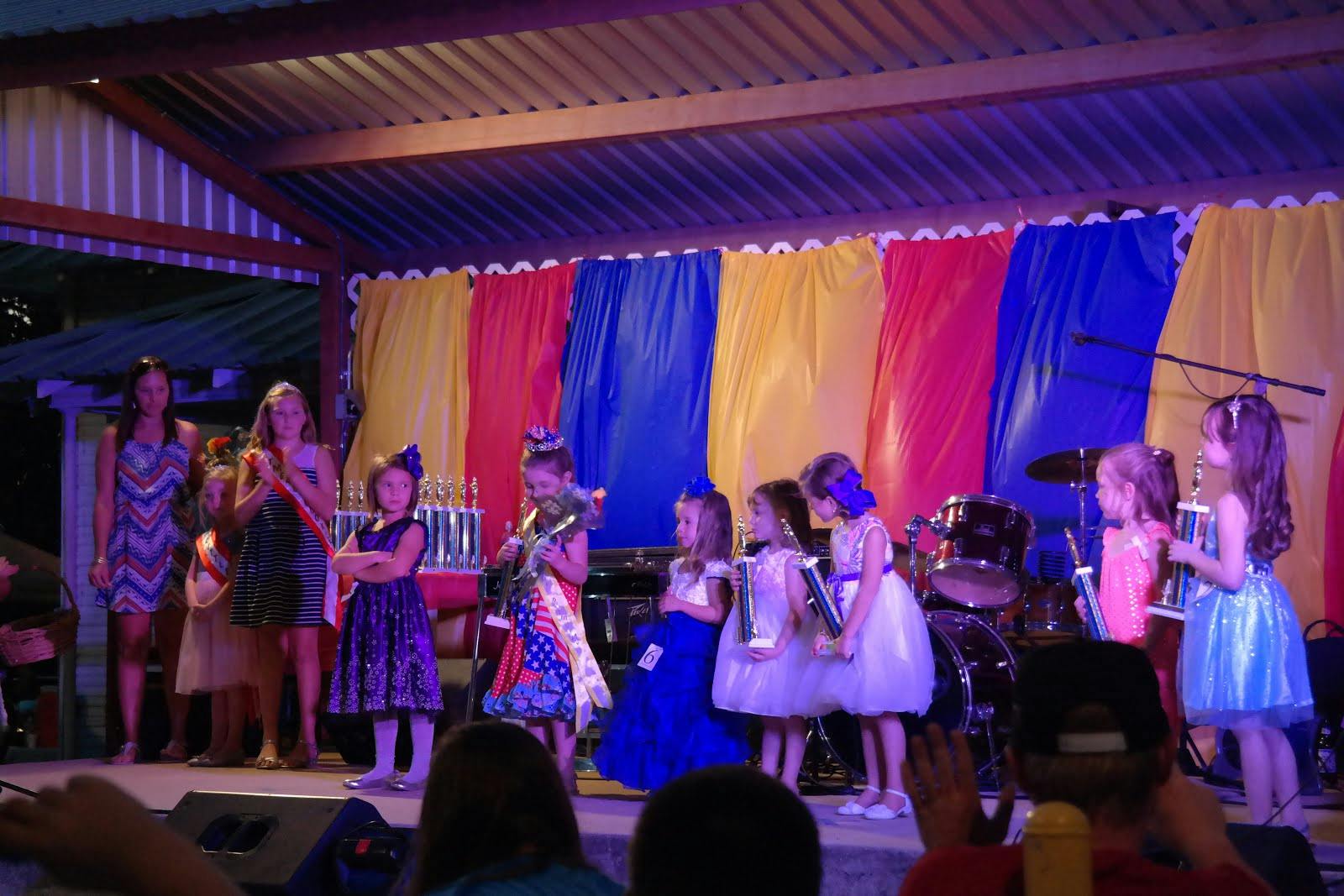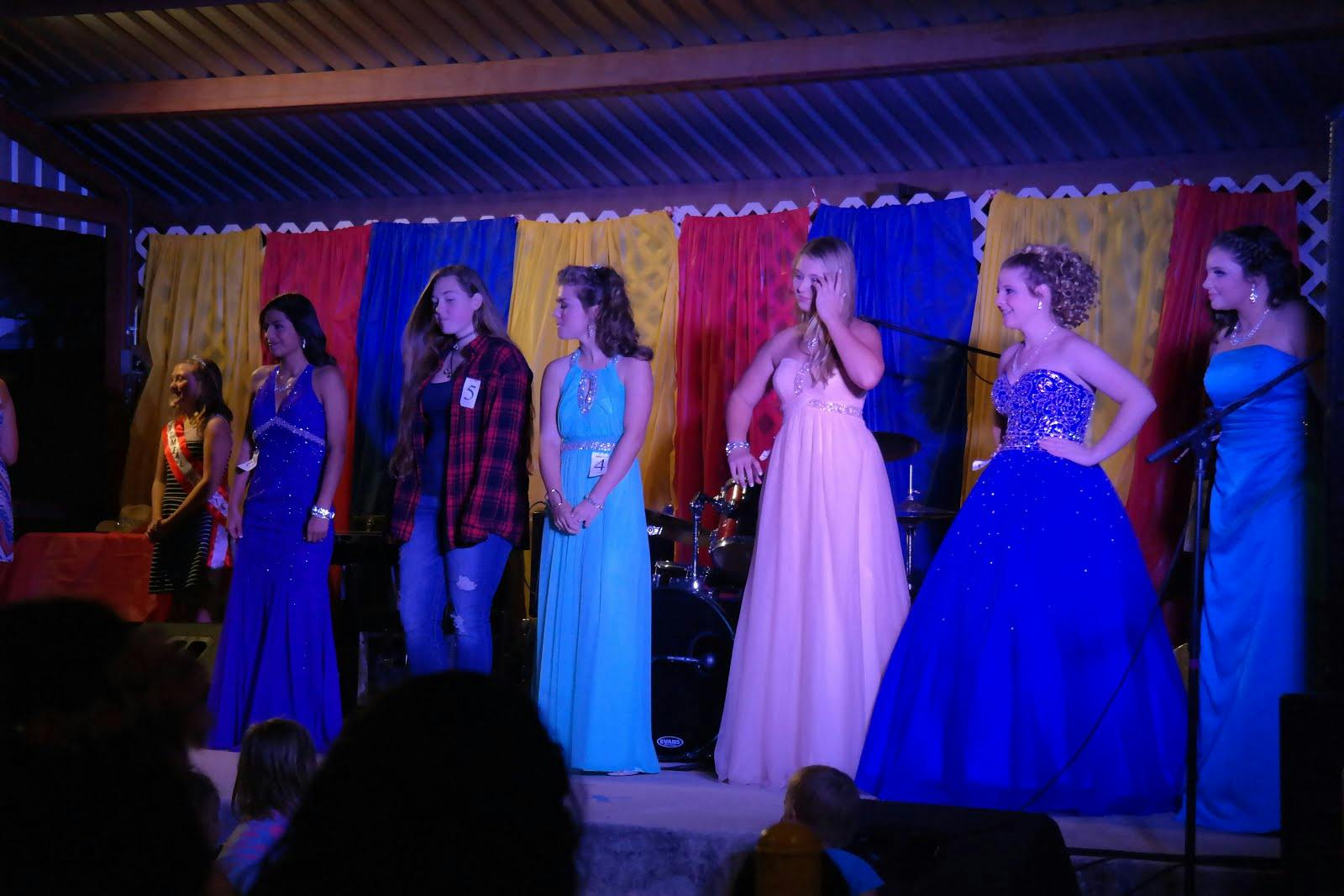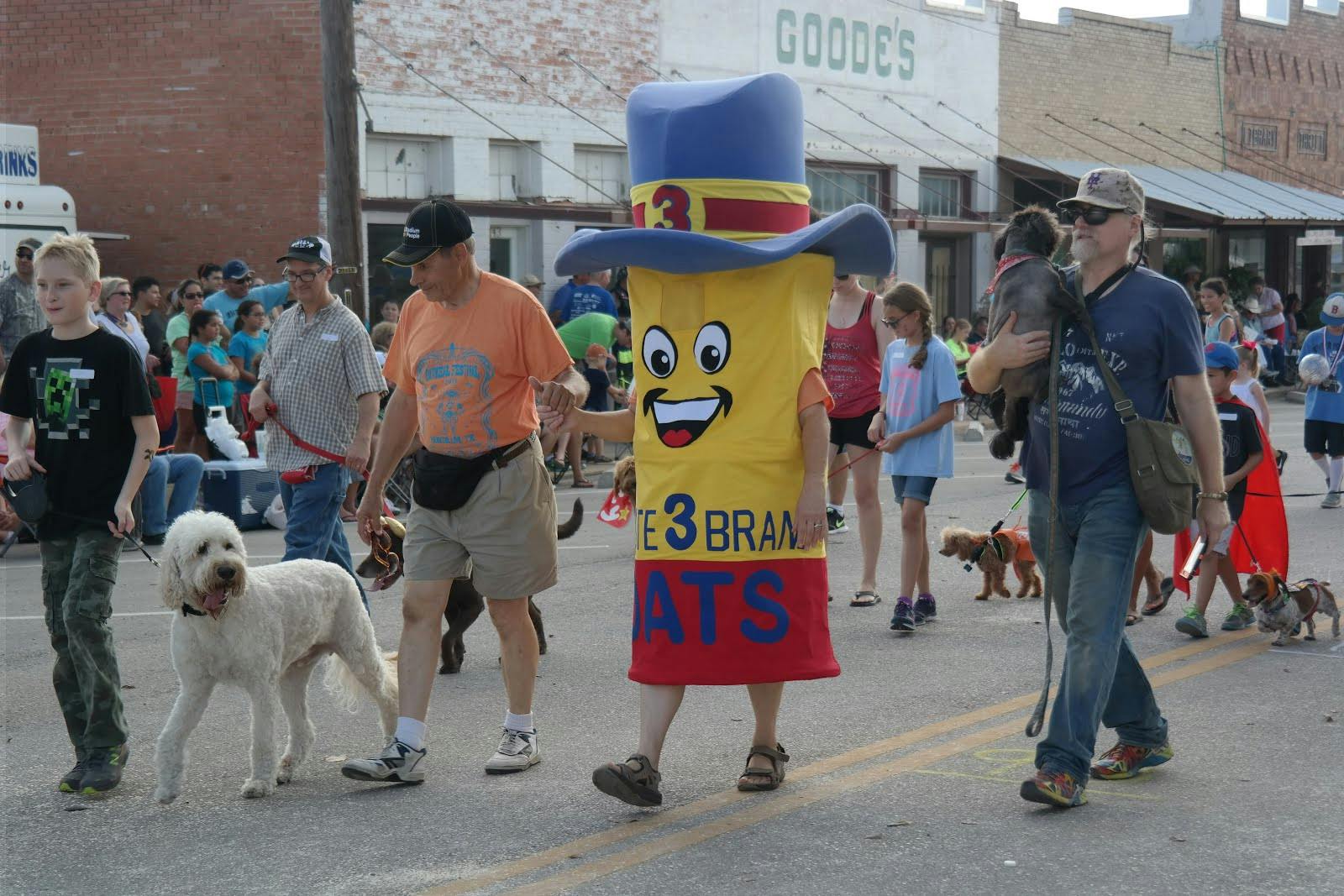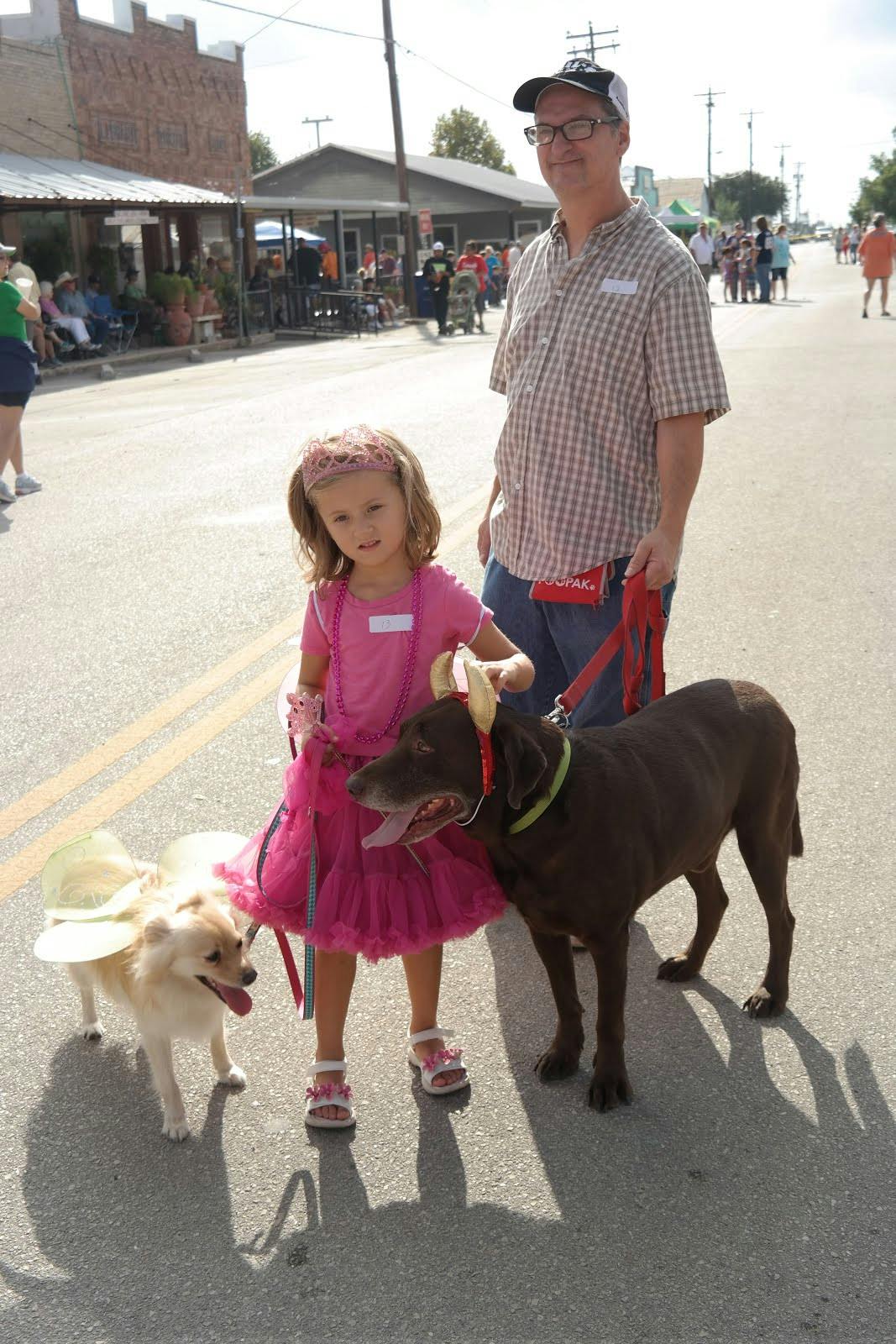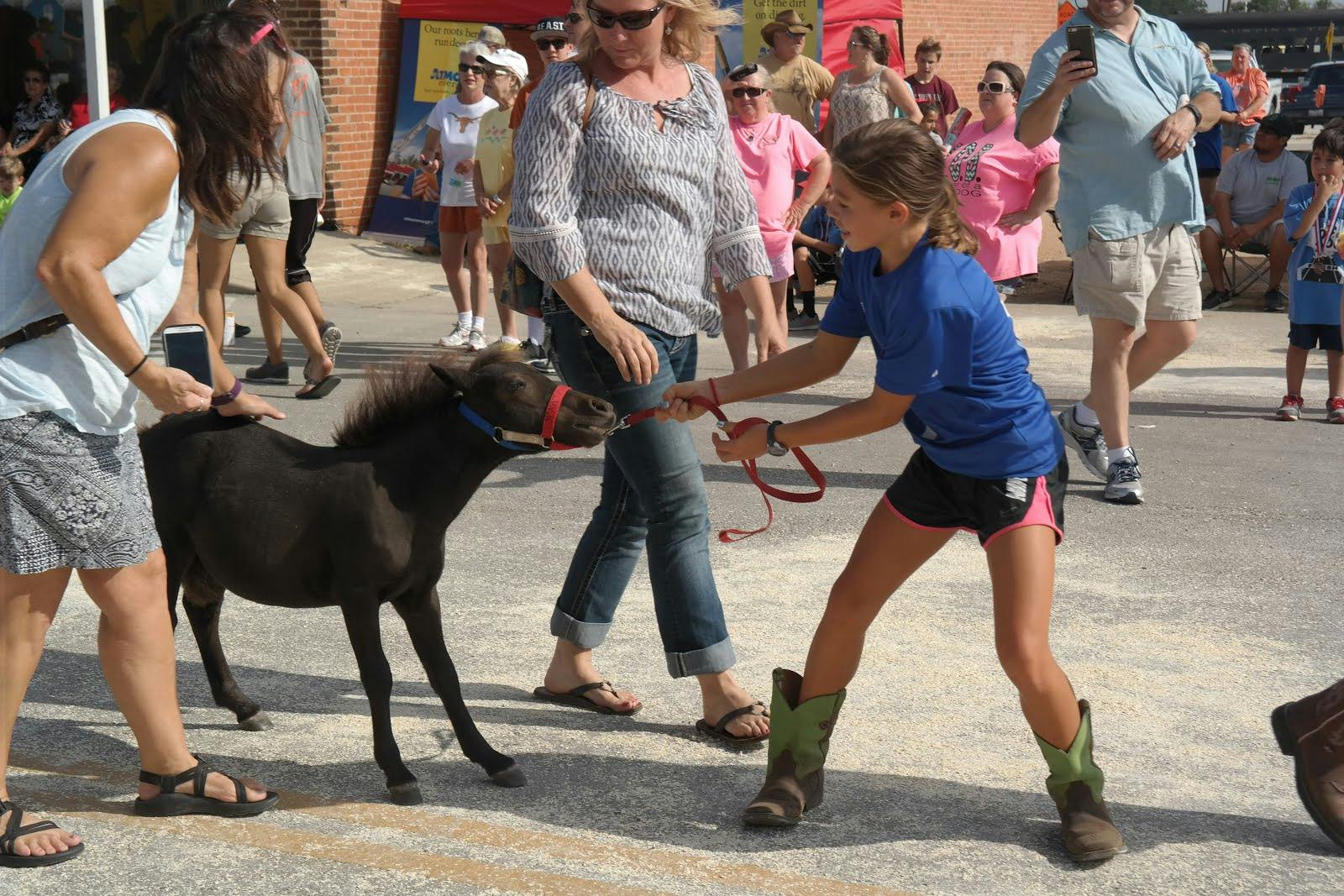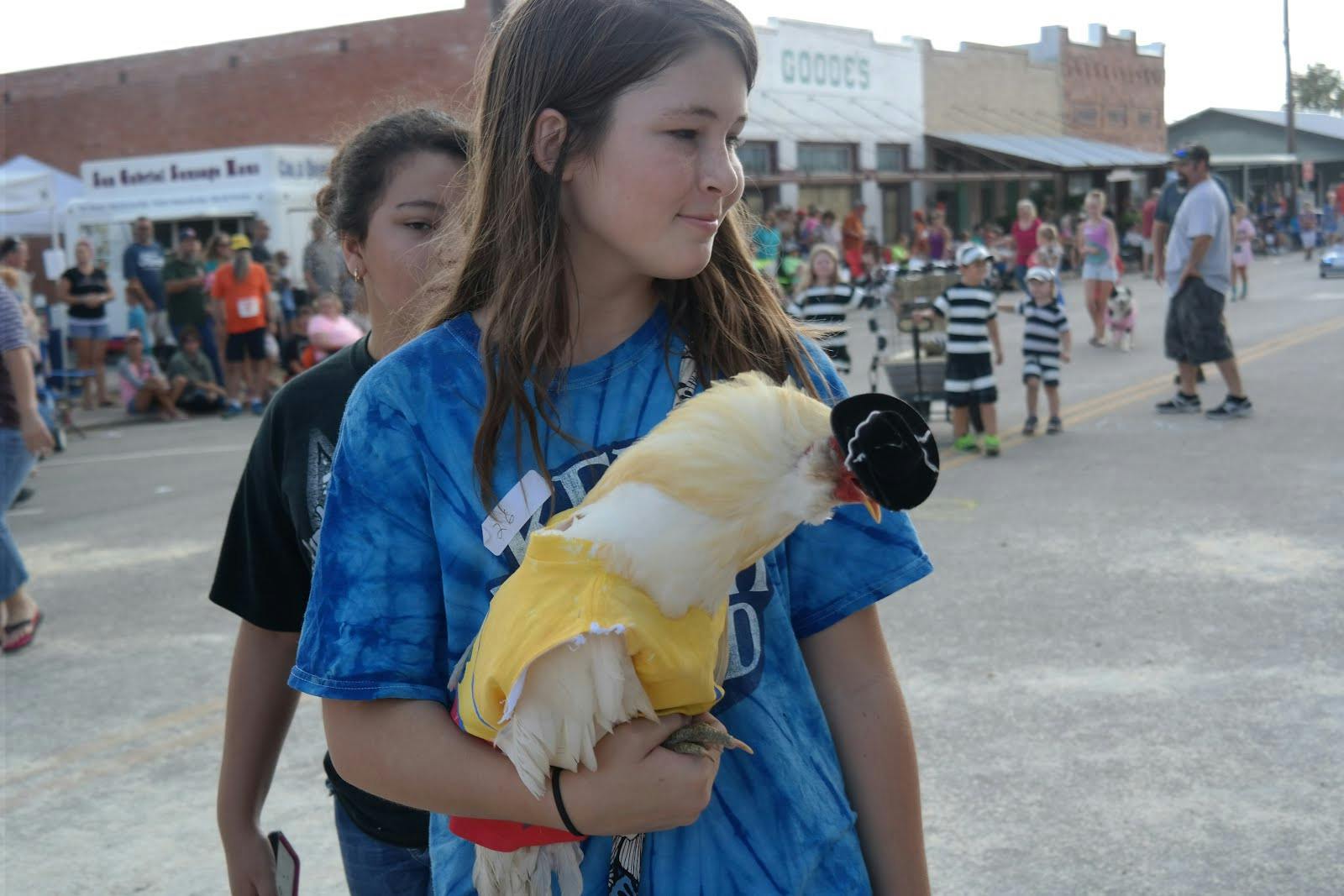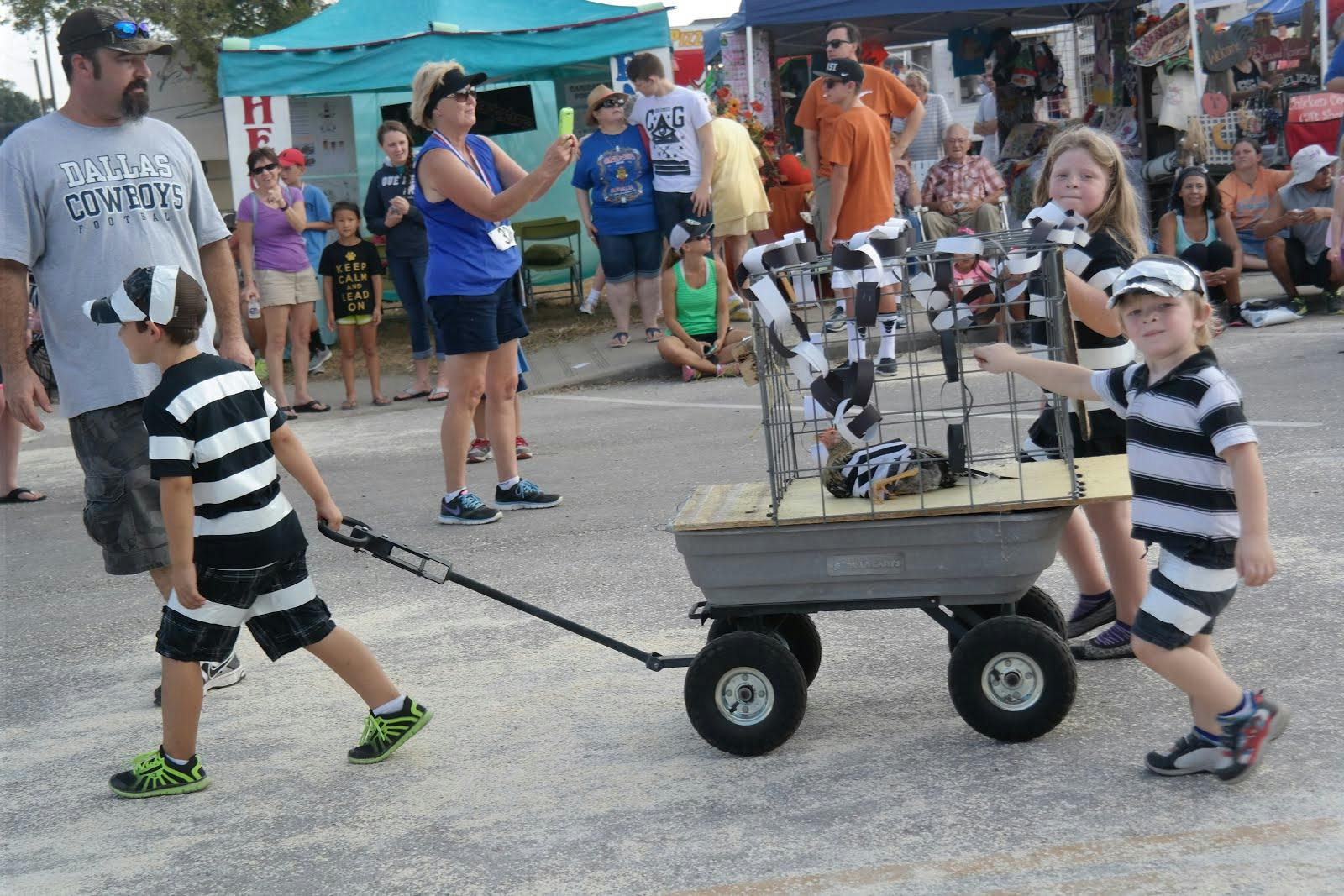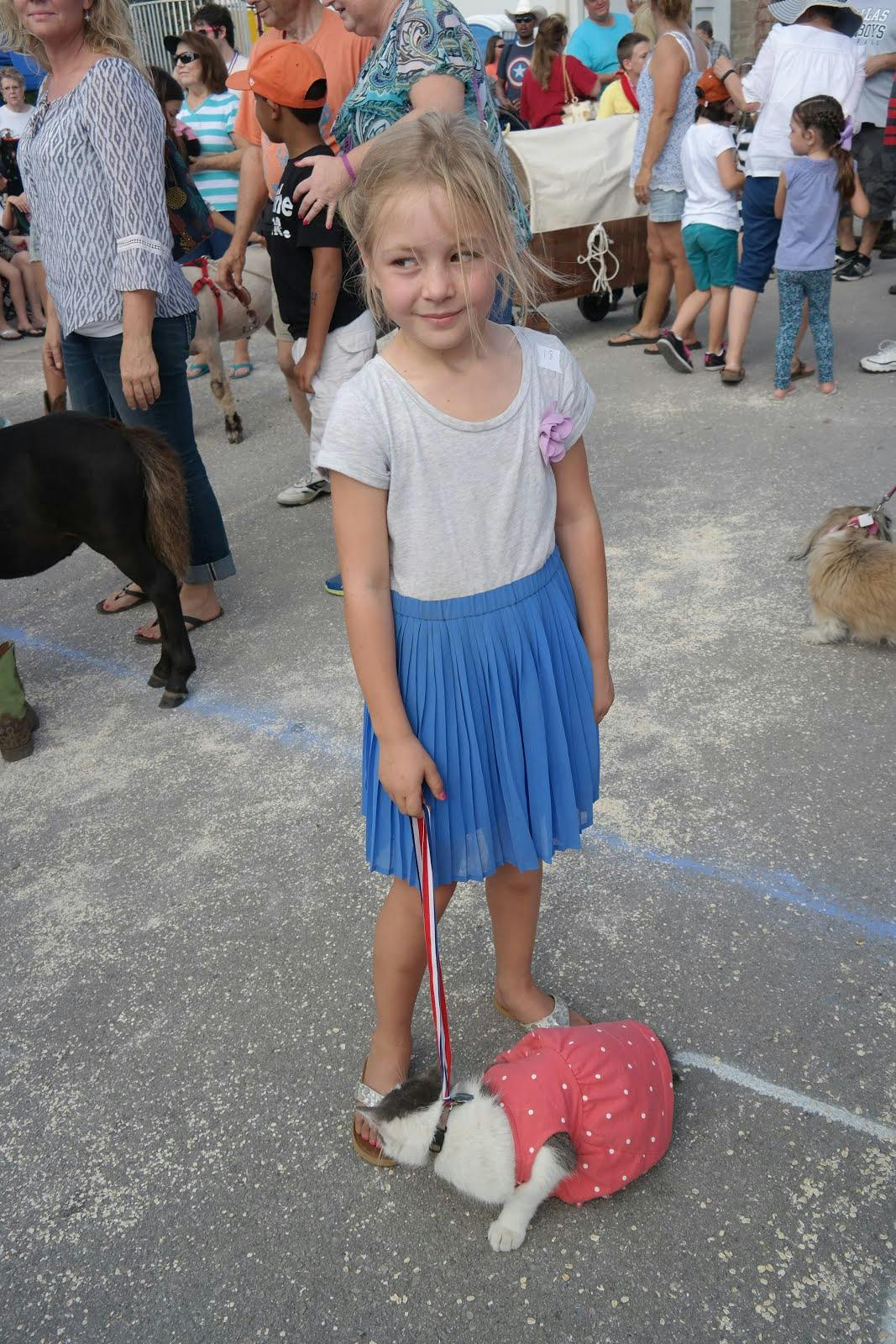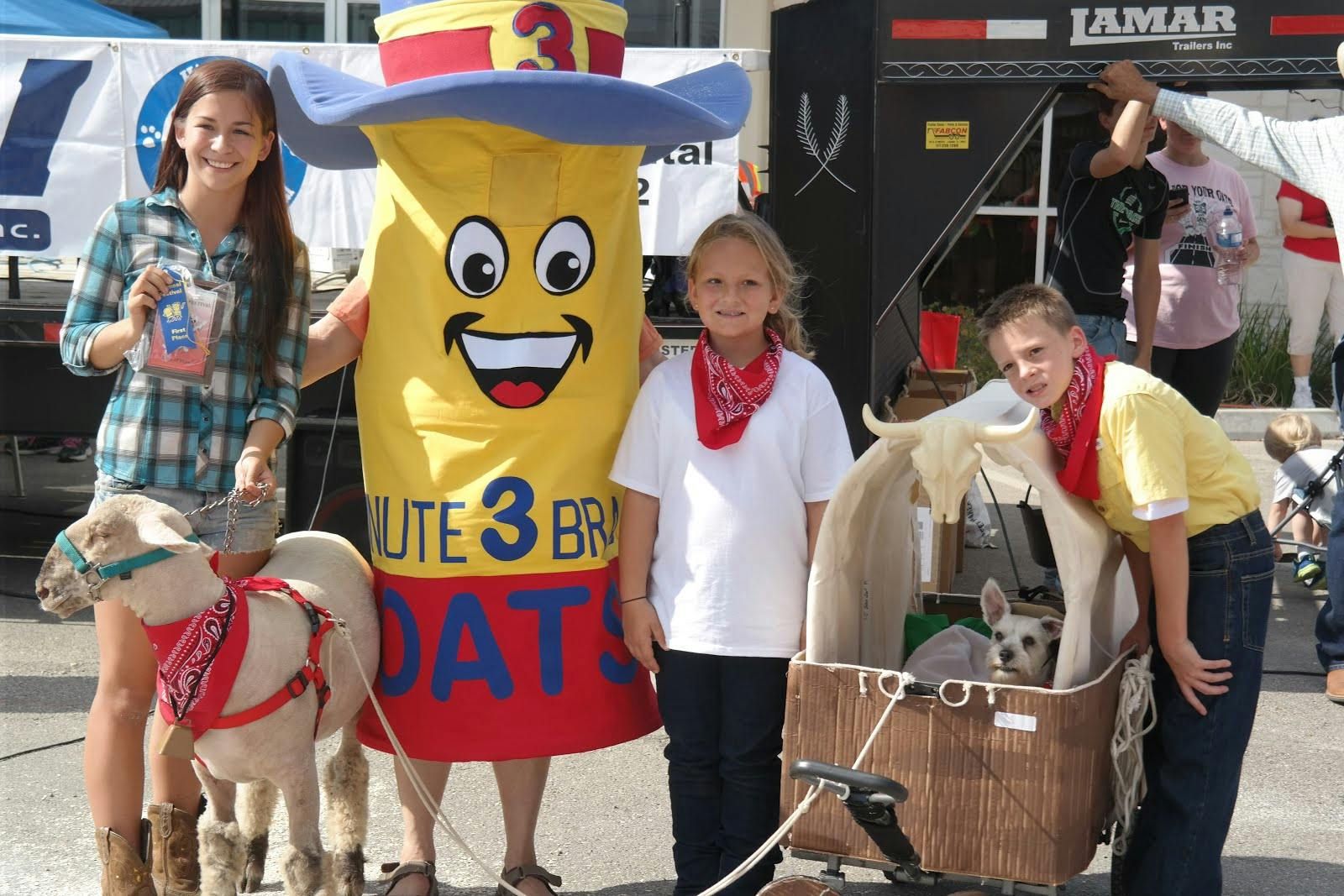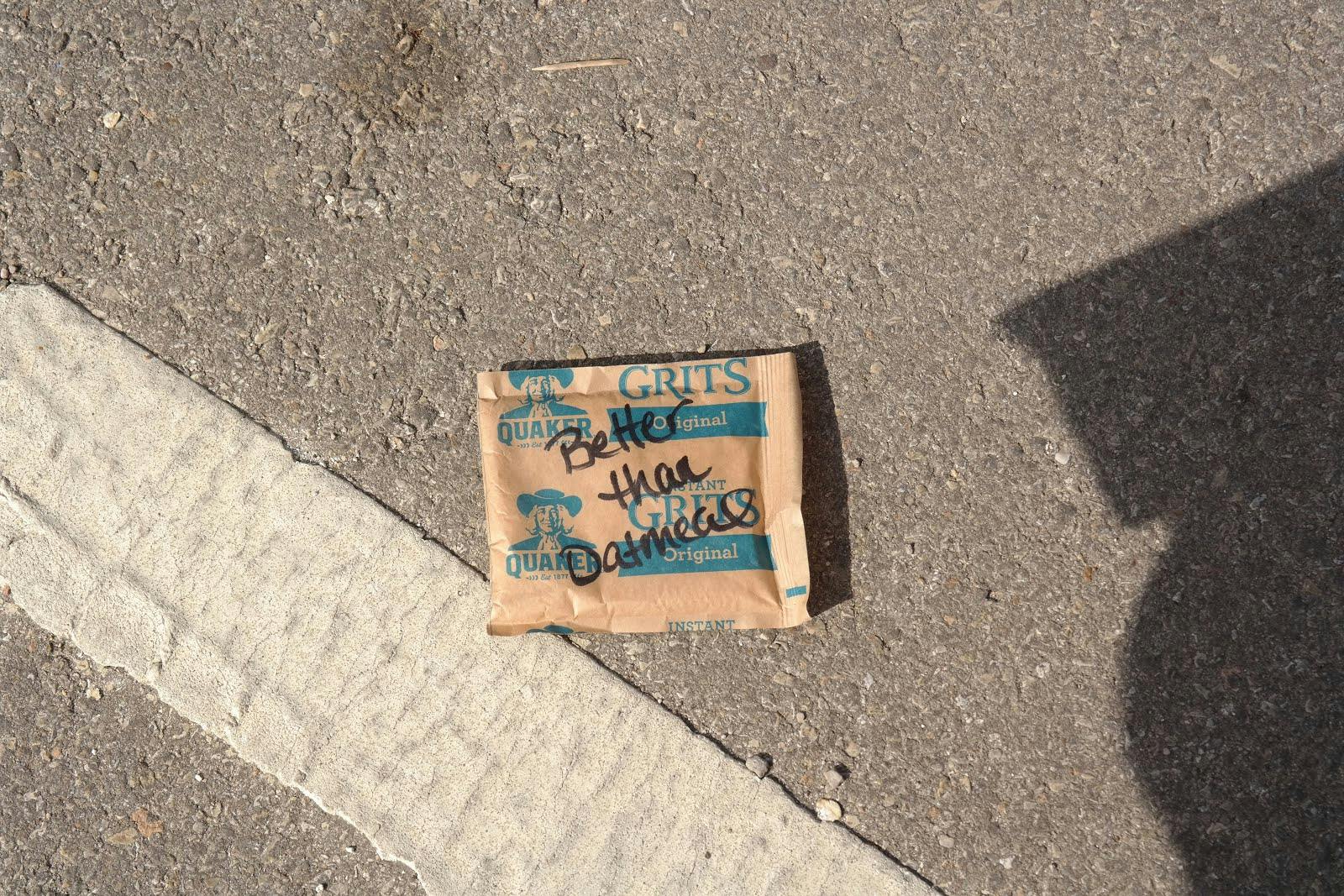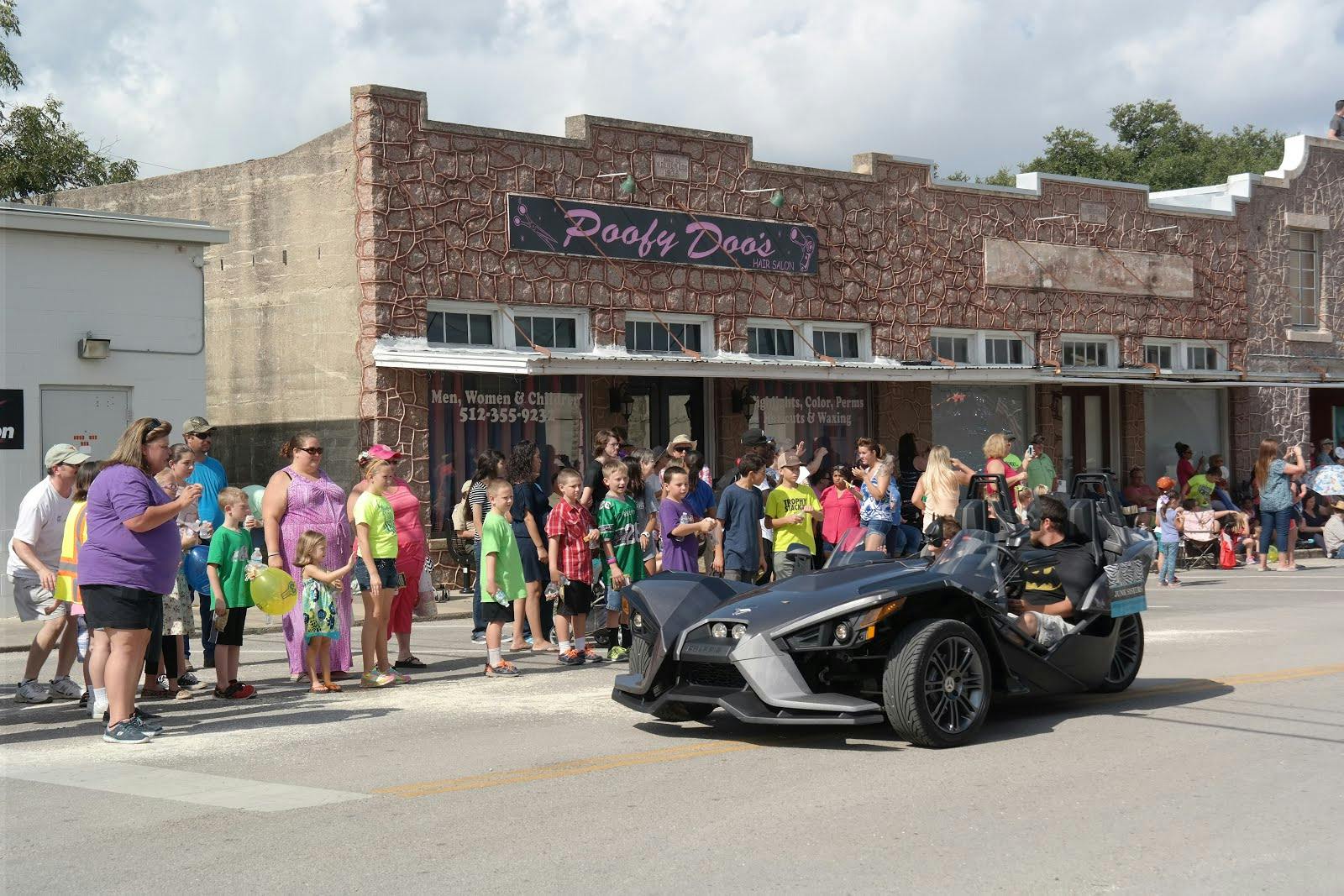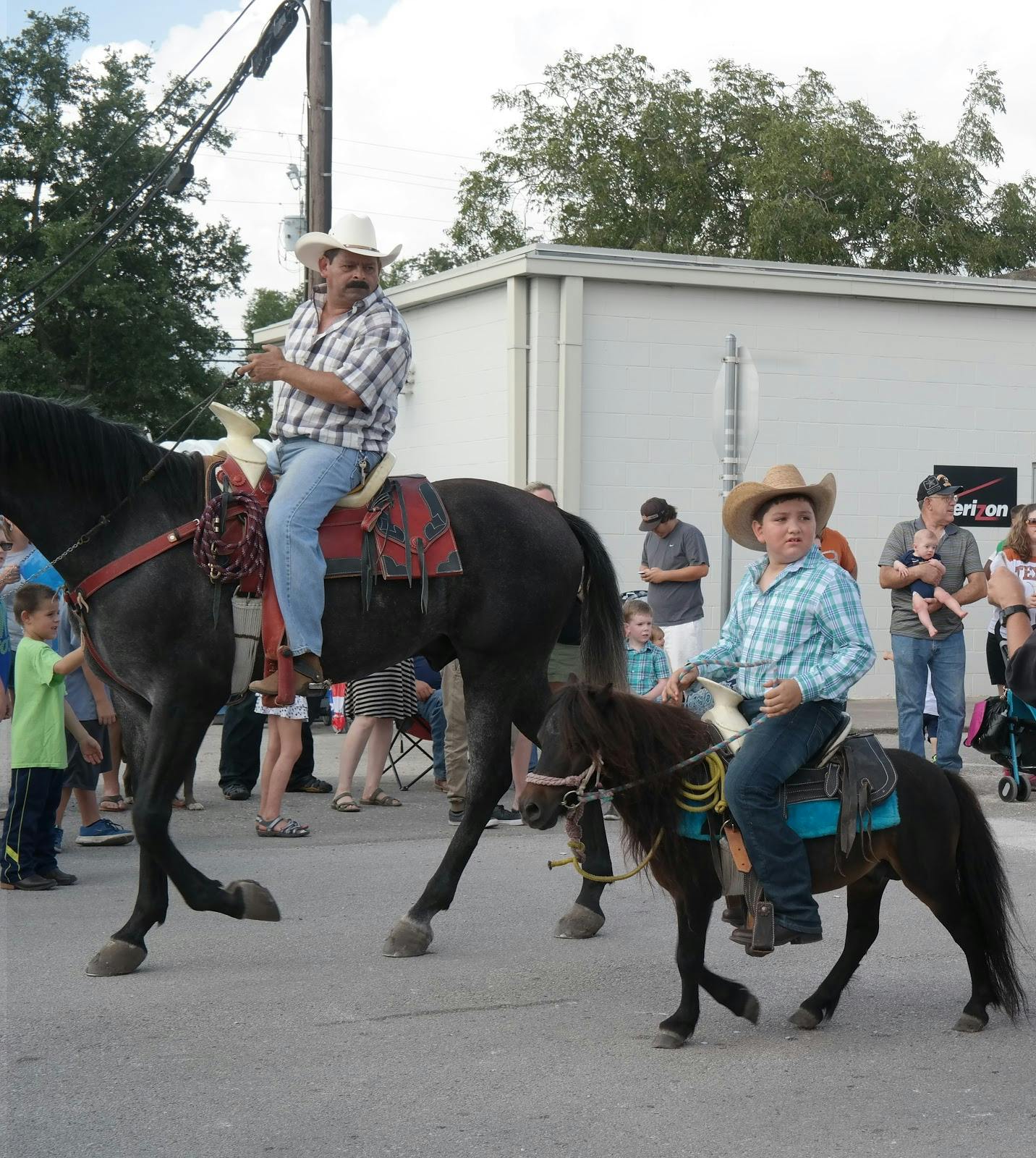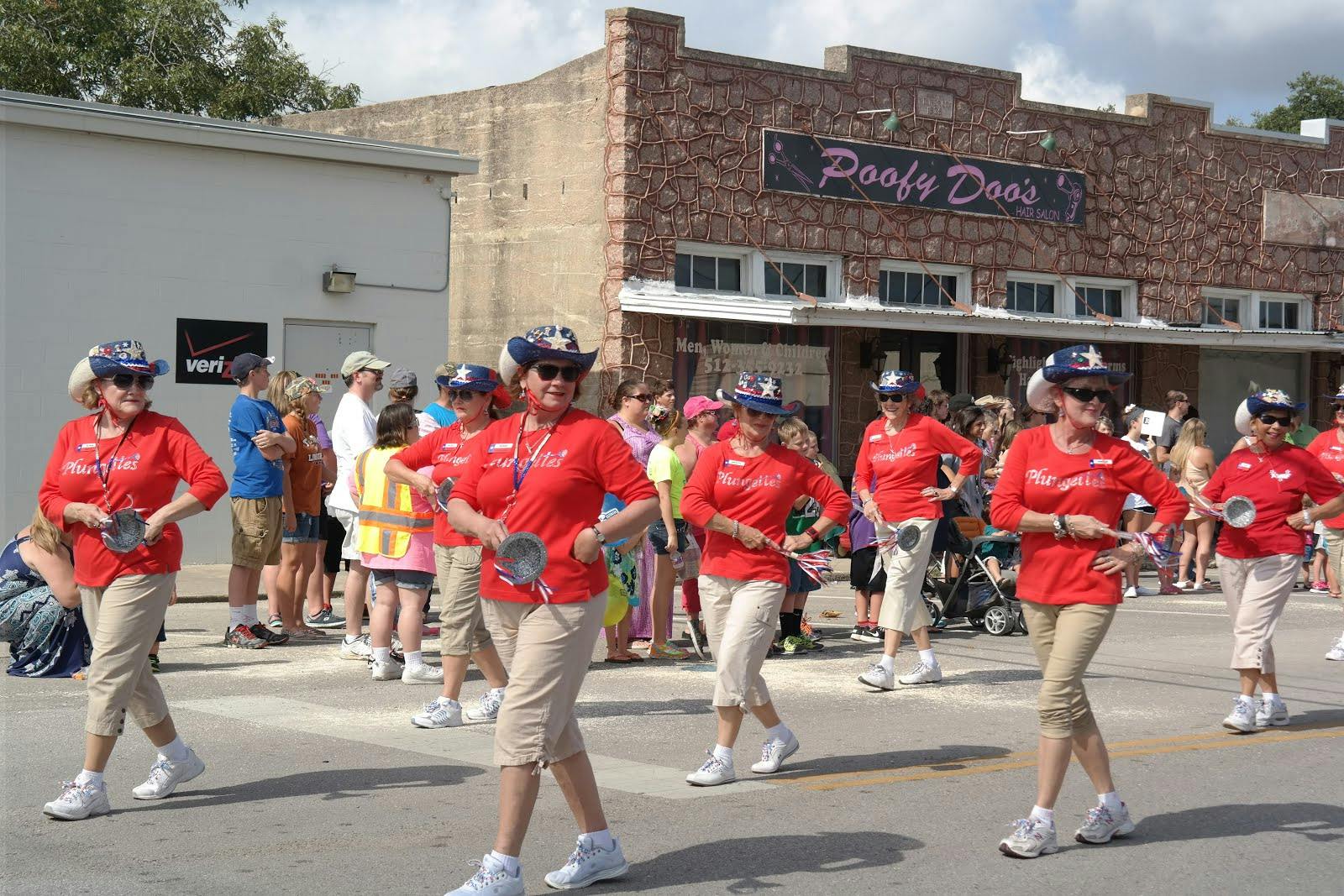I first learned about the Oatmeal Festival during my final semester of college, nearly 10 years ago. I was assigned to travel to a place and write about it; if we didn’t know where to go, we were encouraged to make the use of a Texas map (back then, maps were physical objects you unfolded and scoured so you could guess where you were relative to other places on the map, then failed to fold back up correctly) by identifying a place we might like to go and explore. It was upon this map that my eyes caught sight of an intriguingly named town about an hour northwest of Austin:
Oatmeal, Texas.
Seated just outside of Bertram, Texas (population: 1,353), and about 10 miles east of the slightly more populated Burnet (population: 5,987), Oatmeal lacks anything resembling a town (population: 20). You only know you’ve arrived because a giant inflatable container of 3-Minute Brand Oats (the official sponsor of the festival) sits in a field near the road.
When I first arrived in Oatmeal, back in 2006, I had to venture into Bertram to find out anything more about the town—this container was the only piece of information I had. At the Bertram Library, the librarian was anxious to acquaint me with the community’s annual Labor Day oatmeal event through a slew of binders and pamphlets.
Nearly 40 years ago, the Oatmeal Festival in Bertram, Texas (not to be confused with the Quaker Oatmeal Festival in Lafayette, Colorado, which began after the Texas community’s) was born from the idea to “spoof” the many chili cook-offs found in small towns and intended as a protest-type event to keep the small town of Oatmeal on the Texas state map (mapmakers ignored the town in 1977).
Though it remains small in size and scope, the festival has slowly grown since its inception, featuring various activities and contests while supporting the education of local youth through scholarships.
Thoroughly enchanted by this small community’s oatmeal ritual, I promised the librarian that I would attend the festival. Purely by chance, I was reminded of the festival this summer and was fully inspired to set everything in motion: I would finally fulfill my promise to the Bertram librarian and seek the adventure that my fate held.
In Austin, where I live, a festival happens nearly every weekend. Off the top of my head, my city plays host to Fantastic Fest, ACL Fest, FunFunFun Fest, Pecan Street Festival, Texas Book Festival, Austin Film Fest, Zilker Kite Festival, Hot Sauce Festival, Eeyore’s Birthday Party, and of course, the two-week long SXSW Festival. None of these festivals are small in scope or size, and they all make sincere efforts to attract many people to check out vendors, movies, music, food, and drum circles. If you wish to attend any of these events, you must first plan your visit around how to even get and stay there—planes and hotels and parking lots fill up fast. Once there, you’re presented with a surplus of choices and possibilities of how to engage with all the stimulation. Overall, these festivals can be stressful and demanding instead of what I often wish they were: easy entertainment.
You can imagine my delight, then, in discovering a small community’s much more modest festival accommodations—which barely incorporated the product for which it’s named. That’s right: At the Oatmeal Festival in Bertram, Texas, there was no battered and deep fried oatmeal. No one tried to dunk another person into a vat of oatmeal. No one wrestled in a wrestling ring filled with oatmeal. I saw no one competing for Best Oatmeal Sculpture. No one made intricate mandalas out of food coloring-dyed oatmeal.
There weren’t booths selling various oatmeal-based foods (one booth sold a small selection of cookies), or even a place where you could find oatmeal with a selection of fixins’. The oatmeal you did see was scattered onto the street, apparently dropped by an airplane at some point early in the morning. This was not what I’d come to expect from my dabbling in the shameless excess of Austin festivals.
Perusing the schedule of activities that the festival promised, I was most excited about the Friday night beauty pageant and the pet parade the following morning. Unlike reviewing the schedules for any festival in Austin, this did not require the use of spreadsheets, or trading one interest for another.
The beauty pageant, which took place in Oatmeal, near the giant, inflatable 3-Minute Brand Oats container, included five categories: Miss Little Bit of Oatmeal: 4-6 years old; Miss Oatmeal Muffin: 7-9 years old; Miss Oatmeal Cookie: 10-11 years old; Miss Oatmeal Princess: 12-13 years old; Miss Oatmeal Queen: 14-18 years old and enrolled in high school.
All of the pageants seemed to proceed fairly conventionally, with girls in pretty dresses walking the stage and waving while the host informed us of trivia like their favorite color or food. It wasn’t a huge production, but fulfilled the minimum requirements of a typical pageant. Halfway through, cakes were auctioned off for as much as $600. Some of them contained oatmeal. Shortly after, the final pageant for Miss Oatmeal Queen began. After four Oatmeal Queen contestants walked the stage in prom-like attire, Contestant #5 appeared in all her grunged-out glory.
I immediately fell in love with this contestant for defying convention and the pressure to dress up as someone she is clearly not. As she walked down the stage, the thought that maybe the grunge outfit was an accident (a lost dress?) hit me, but then the announcer informed us that #5 likes writing poetry and that her favorite poets are Edgar Allen Poe and e.e. cummings.
I knew then, with the heart of someone who knows its complements, that her outfit was entirely intentional. She was the clear winner, demonstrating more personality in her poise, wardrobe, and brief description than all of the other contestants combined. (These contestants seemed to be judged based on their appearance and the answer to a question about responding to peer pressure). After the pageant was over—Contestant #5 didn’t even place—I vowed to approach my heart’s winner and tell her how she’d stolen it, but I felt too intimidated: Contestant #5 was far too cool for both high school me and grown-ass woman me. I decided I’d just carry her heart with me(i carry it in my heart) to keep my idealization of her intact.
The Pet Parade was scheduled for Saturday morning, and the fact that I mustered the grandest of courage to get up in time in order to see it really speaks to my commitment and desire to see pets gallivanting about, in or out of costume. Luckily, my bravery paid off:
Before the Grand Parade began, the police caught an anti-oatmeal villain who was preaching the gospel of grits and distributing appropriately blasphemous packets to the crowd.
A martyr to the cause of grits, this villain’s punishment was to have honey and oatmeal poured over him à la tarring and feathering.
After the bandit’s arrest, the parade proceeded—with a few stand-outs.
The Plungerettes were the clear highlight of the parade, demonstrating refined plunger-propping prowess and no doubt inspiring the audience to create their own dance routines with household cleaning products:
Based on my city festival experience, the only thing this festival lacked was a plethora of oatmeal. If your festival is named after a food, one reasonably expects the streets to be swarming with booths featuring that food. Though I would have relished body-slamming someone in an oatmeal wrestling ring, it was a relief to attend a relaxed festival that put on no airs. Nothing felt overabundant here—this town and its neighboring communities care more about supporting each other than they really do about oatmeal. If the festival were an exercise in excess, this grounding principle would be lost.
In fact, if the Oatmeal Festival were a bigger deal, an enterprise known for its oatmeal extravagance, then maybe I wouldn’t have discovered it by stumbling across the breakfast-named town on a map years ago. The whole reason this festival exists is because the community wanted to keep Oatmeal on the map—and that’s exactly how I found it.
And if the Texas map fails to name you, do you even exist? Was it my destiny to fall in love with Contestant #5? Will I ever see her again? Have the cards of my future always contained the image of women using toilet plungers as dance props? Is part of me trying to resurrect the lost romanticism of the small town from whence I came? Is time a flat circle?
I’ll let The Plungerettes provide these answers:
Photo via Daniella Segura/Flickr (CC BY 2.0)

